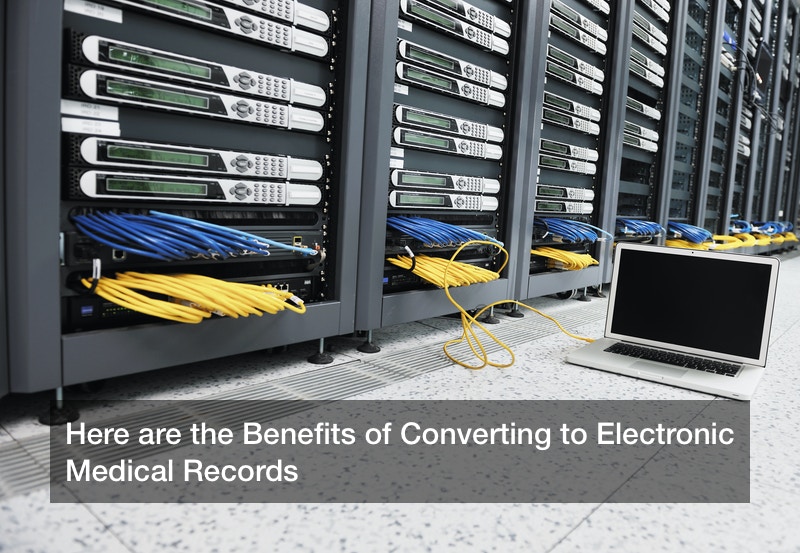
Paper work is everywhere you look these days. It’s estimated that there are over 4 trillion paper documents just in the United States, an amount that’s growing at a rate of 22 percent per year. One area that is full of paper records is the medical field. There are records for patients, records for hospitals, the amount of records is almost limitless. That is why many are choosing the process of converting from paper to electronic medical records. This article will look at the benefits of EMR, also known as electronic medical records.
- It’s Easier to Find Records When They’re Needed: One benefit of converting paper to electronic health records is that the records are now easier to find when they’re needed. Instead of sorting through multiple paper files to find the file you need, you can instead do a computer search and quickly pull up the record you need. An additional benefit with this is that there’s no risk of the file becoming lost since it is now stored digitally.
- It Helps the Environment By Reducing Paper: Another benefit that comes with any EMR project is that it helps the environment by reducing the amount of paper generated by the hospital or related medical industries. 92 million metric tons of paper are produced by the United States annually, and converting to electronic medical records can put a dent in the production of paper and prevent more paper from being generated and ultimately going to waste.
- Little Storage Space Required: Another benefit of converting from paper to electronic medical records is that is reduces the amount of storage space needed for medical records. In paper form, records can take up entire rooms, even when they’re stored in organizers like filing cabinets. However, when these records are converted to electronic medical records, they’re now stored on computer servers which take up far less space. This can open up more space in the hospital and other medical buildings.
In conclusion, there are several benefits that come from converting from paper to electronic medical records. These include making it easier to find records when they’re needed, helping the environment by reducing paper, and requiring little storage space to hold the digitized records. These are just a few of the benefits that come from converting to electronic medical records.
